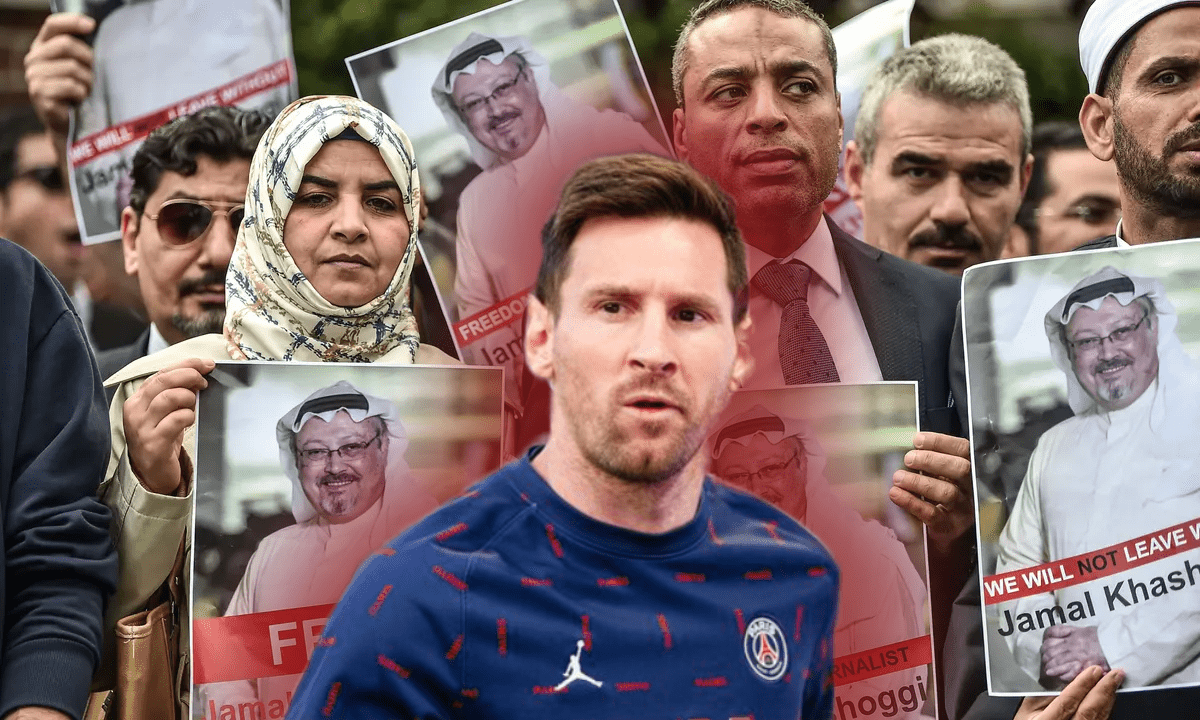Lionel Messi was announced last week as Saudi Arabia’s newest tourism ambassador, and has begun promoting the nation with the hashtag #visitsaudi. Saudi Arabia regularly ranks among the worst nations for its human rights record. Homosexuality, for example, is punishable by death under law, while individuals face systemic discrimination on the basis of religion, gender and migration status.
As one of the most recognisable people in the world and the best football player of all time, Messi’s partnership with Saudi Arabia marks a significant milestone in the despotic nation’s attempts to improve its global public image.
Yet professional sport has long been used by dubious regimes to legitimise authority over a nation’s affairs. One of the earliest modern examples is ‘Hitler’s Games’, with the 1936 Berlin Olympics, and its associated propaganda campaign, seeking to normalise and establish the burgeoning Nazi regime on the world stage.
However, authoritarian countries are now expanding their reach from international spectacles to individual teams and even athletes as part of the growing phenomena of ‘sportswashing’.
The term sportswashing entered popular usage after Amnesty International defined it in 2017 as “states guilty of human rights abuses investing in sports clubs and events in order to rehabilitate their reputations”.
With human rights violations currently a dime a dozen, and amoral sporting entities eager for injections of funds from wealthy foreign governments, it is no surprise that sportswashing has been on the increase.
Yet there are some preliminary signs that some organisations may be finally starting to push back.
The All-England Lawn Tennis and Croquet Club, the predictably pompous institution in charge of the Wimbledon tennis championships, recently announced its decision to ban all Russian and Belarusian players from the 2022 event in the wake of Russia’s invasion of Ukraine and Belarus’ support of the conflict.
This unprecedented step was largely believed to have been taken to prevent the possibility of a Russian triumph at arguably the world’s biggest tennis tournament.
And it wasn’t an unlikely scenario.
The ban will stop men’s world number two Daniil Medvedev, as well as number seven Andrey Rublev and women’s number eight Aryna Sabalenka from competing at the grand slam.
For many, the banning of individuals who happen to hail from a country guilty of human rights abuses is a step too far, but some in academia, including Princeton’s Professor of Politics and Human Values Anna Stilz, argues otherwise, “What happens if we treat state crimes as totally detached from individual citizens? Terrible things”.
The reason that many in political academia are keen for the stamping out of sportswashing is that it is so useful for leaders such as Putin to embolden coercive foreign policy.
Anyone with even a passing interest in sport in the last ten years could not have failed to notice that Russia has held some of the world’s biggest sporting events, including the 2014 Winter Olympics, 2018 FIFA World Cup and was due to hold this year’s UEFA Champions League Final.
Putin’s personal affinity for physical activity is also common knowledge, in particular those classic sports of shirtless horse riding and frozen lake swimming being an integral part of his cult of personality.
For Putin and other wealthy tyrants, sport became a way of securing victory. By hosting large events, Putin could prove that Russia was above the scrutiny of insignificant foreign nations due to its physical prowess, even if they were largely chemically enhanced. Beyond actual performance in these spectacles, simply hosting and participating is an effective means of normalising a nation in the public eye, of shaping perceptions of it in the global consciousness. Indeed, we’re less likely to openly condemn a country when its athletes compete alongside our own, when it is represented by likeable sportspeople at the top of their game.
While the condemnation of Russia in the sporting world has been immediate and widespread, with ban on Russian clubs in football, basketball and volleyball as well as Russian owners of overseas clubs like Chelsea FC, other regimes have so far managed to escape the ire of the global sporting community.
Arguably the kings, or perhaps crown princes, of sportswashing are the Saudi Arabian royal family, who have used their vast oil wealth to pursue image rehabilitation through professional sport.
In the last decade alone, Saudi Arabia has relentlessly sought to host global events in Formula One, tennis, golf, boxing and even WWE wrestling in an attempt to rebrand itself as a cosmopolitan modern society.
In addition to recruiting Messi to clean its image, Saudi Arabia has taken two big swings in the last 12 months that could critically undermine the moral integrity of two of the world’s largest sports.
First, the purchase of fabled English Premier League club Newcastle United has tied English football with some of the few despotic practices it had thus far managed to avoid.
Second, the Saudi Golf League spearheaded by Australia’s own Greg Norman threatens to tear apart the established professional golf circuit for the lure of international legitimacy.
Sportswashing has grown significantly in popularity in the last ten years, but as its prevalence has increased so has its condemnation.
Unfortunately, stopping nations like Russia and Saudi Arabia from influencing global sport is unlikely to bring an immediate end to atrocities.
However, global displays of unity are becoming fewer and further between in the 21st century, and what better forum to show our collective rejection of human rights abuse than the theatre of sport.
The great allure of sport has always been that it teaches everyone from young children to the rusted-on elderly fans that teamwork and collective action is the pathway to success.
Surely if sport has taught us anything, it is that anything can be defeated if you show a united front.
Though we may not find fault with some of the individuals forced to play for this repressive opposition, it is the crushing defeat of the team that matters most of all.





